China-South Korea relations challenged amid tit-for-tat travel controls
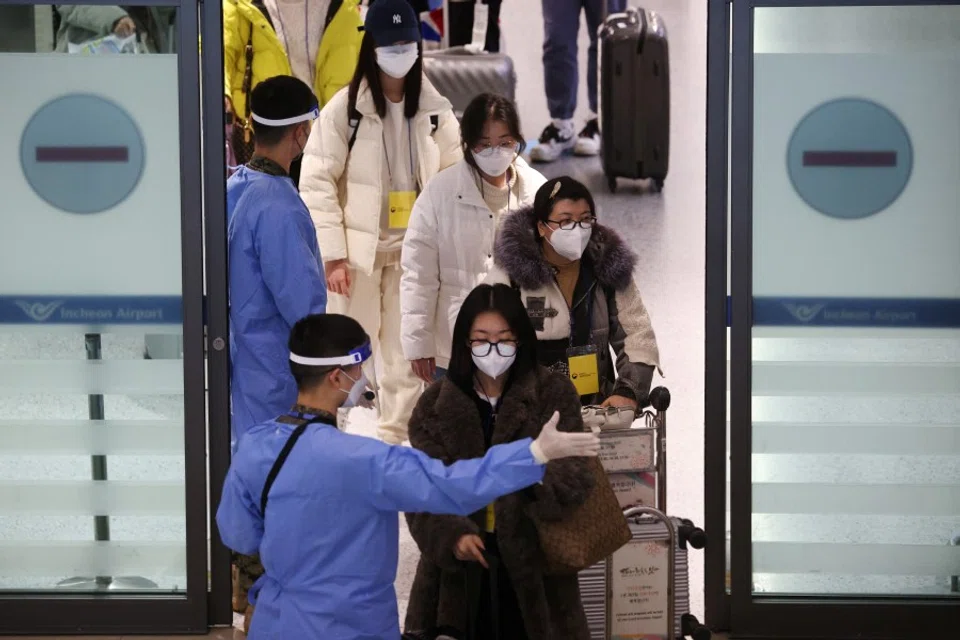
China's relations with South Korea and Japan have already taken a dip at the start of the new year. Amid growing distaste among the people, the South Koreans and Japanese are putting on hold their travel to China. Meanwhile, a row over visas has marked a poor start to the year for China in terms of relations with its neighbours, and has backpedalled months of effort in its relations with South Korea.
Measures against Chinese travellers
Covid-19 cases has spiked when China suddenly lifted Covid-19 controls for its 1.4 billion people in December last year, with infections in several cities immediately soaring to 70-80% of their population. Despite the rapidly increasing death toll, the authorities no longer released figures on confirmed cases; the lack of transparency thus sparked alarm in a number of countries. At the end of December, Italy, India, Japan and the US announced the tightening of border controls on travellers from China, mainly calling for pre-departure testing or both pre-departure and on-arrival testing.
Similarly, South Korea announced on 30 December strengthened controls on inbound travellers from China. Besides requiring pre-departure and on-arrival testing, South Korea also suspended the issuance of short-term visas to travellers from China from 2 to 31 January 2023, excluding visas for public officials, diplomats and those with crucial humanitarian and business purposes.
Evidently, the South Korean government is aiming to reduce the number of Chinese travellers to South Korea for now, to avoid this peak in China's Covid-19 cases.
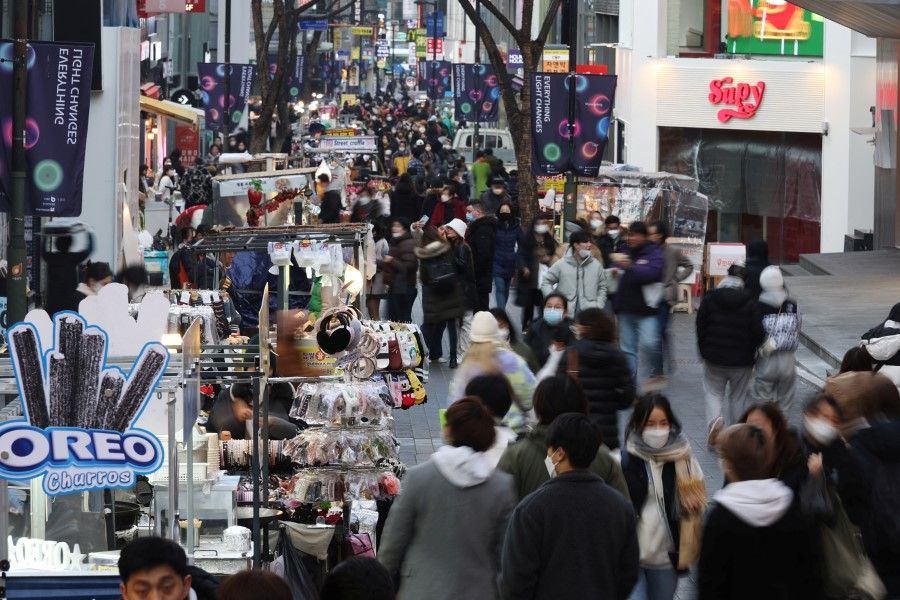
Essentially, South Korea has shut its doors to Chinese tourists, taking stricter measures than the US and India, but just shy of completely barring Chinese visitors, just as Morocco has done. Notably, while South Korea has suspended short-term visas, it is not restricting Chinese citizens with long-term visas from entering. Evidently, the South Korean government is aiming to reduce the number of Chinese travellers to South Korea for now, to avoid this peak in China's Covid-19 cases.
Tit-for-tat travel restrictions
However, the incidents that ensued escalated the issue. A Chinese citizen who tested positive on arrival at Incheon International Airport had run off instead of checking into a quarantine facility. He was eventually nabbed by the South Korean police the next day on 5 January.
The episode drew major attention in South Korea, and might have put the government under pressure from the public. By 7 January, Chinese netizens made complaints and shared photos of discriminatory treatment when entering South Korea, including being made to wear yellow tags, escorted by military personnel, and feeling humiliated as journalists took photos of them as if they were being rounded up like criminals.
In contrast, China's retaliation against Japan is undeserved as it did not restrict visas for Chinese travellers, but has been lumped together with South Korea and faces similar retaliatory measures.
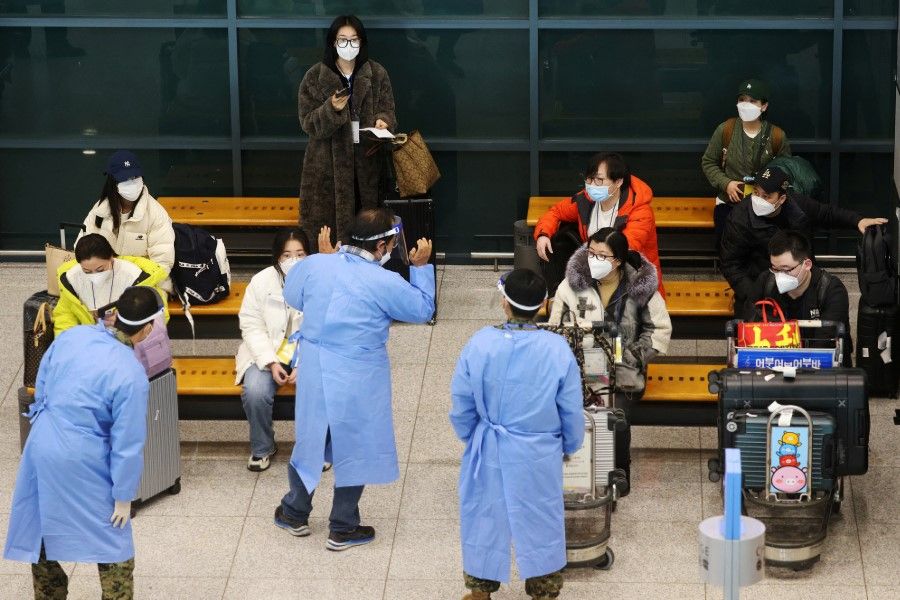
China then announced at noon on 10 January that it would suspend visas for business, tourism, medical treatment, transit and general private affairs for South Korean citizens. That same evening, China announced that it was also suspending general visas for Japanese citizens. And on 11 January, the Chinese government further announced the suspension of visas for port entries and visa-free transit for Japanese and South Korean citizens.
Some South Korean commentaries criticised China for keeping mum about the US and other Western countries, but taking it out on South Korea and making it the first victim of China's tussling with other countries in Covid-19 controls.
But a close look at the border controls of various countries would show that this is not true. Compared with the ramped-up testing requirements in the US and other Western countries, the retaliation against South Korea's visa suspensions and yellow tags is not unwarranted. In contrast, China's retaliation against Japan is undeserved as it did not restrict visas for Chinese travellers, but has been lumped together with South Korea and faces similar retaliatory measures.
However, China clearly does not want to sour its ties with South Korea, but has adopted these countermeasures as a last resort.
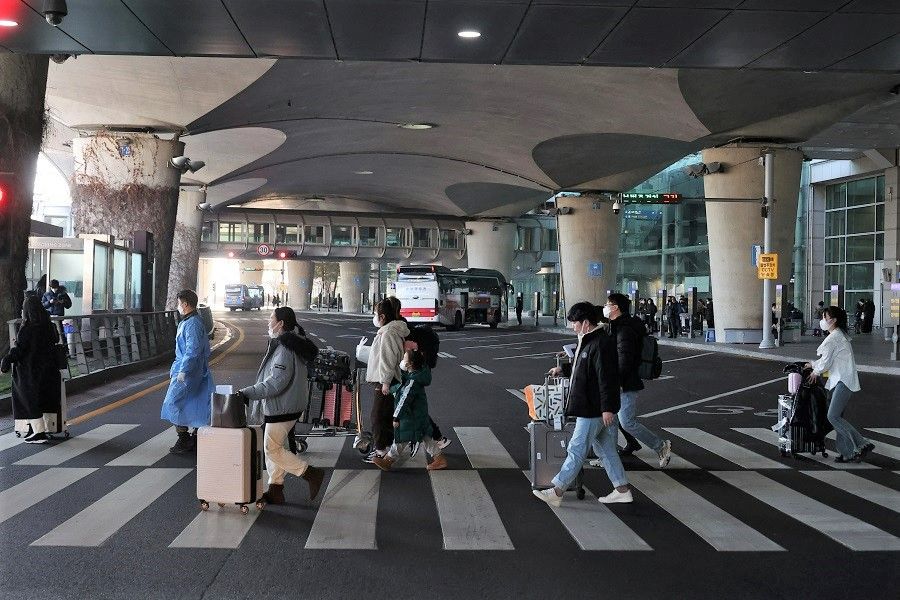
For example, China only took retaliatory measures more than a week later, and its newly appointed foreign minister Qin Gang even spoke on the phone with his South Korean counterpart Park Jin on 9 January to "express concern" over South Korea's "recent entry restrictions on travellers from China" and voiced his hope that the South Korea side "will uphold an objective and science-based attitude". Clearly, Qin's negotiation with Park over the visa issue had fallen through.
In December 2022, China's National Press and Publication Administration approved seven South Korean video games for licensing, signalling the return of South Korean games to the Chinese market since 2017, when South Korea deployed the controversial THAAD missile defence system.
Meanwhile, in November 2022, Chinese President Xi Jinping met with South Korean President Yoon Suk-yeol on the sidelines of the G20 summit in Bali, indicating their desire to forge a stable and healthy relationship.
Managing relations with neighbours
Compared with his predecessors Park Geun-hye and Moon Jae-in, Yoon clearly adopts a pro-US stance and focuses more on values-based diplomacy, proactively supporting the US's Indo-Pacific strategy and joining the Chip 4 alliance that excludes China from the semiconductor supply chain.
Simultaneously, Yoon is trying to avoid tilting completely towards the US and instead seeks balance between China and the US, as seen in the country's Indo-Pacific strategy released in December 2022 that advocates "inclusiveness" and emphasises maintaining cooperation with China.
Chinese Vice President Wang Qishan's attendance at Yoon's inauguration highlights that China is well aware that South Korea is a pivotal country that it must win over in the current Northeast Asia geopolitical landscape.
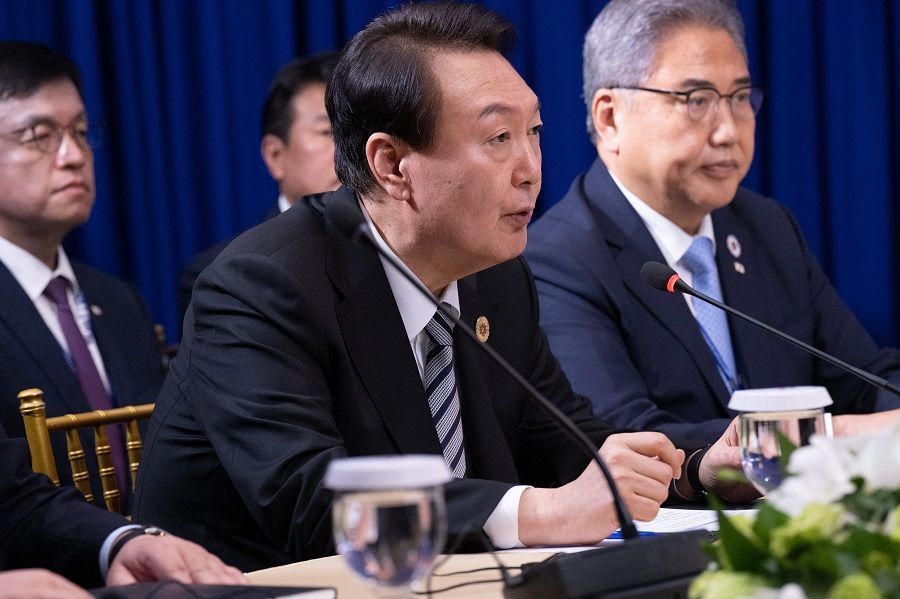
As of late December 2022, China has adopted a "policy of appeasement" - as described by US academic Sun Yun - towards the Yoon administration and has not retaliated against potential "anti-China" policies and inclinations of the South Korean government. This is because of the deep supply chain interdependence between both countries, neither one is likely to give up their bilateral chip trade, whether economically or strategically.
China has been striving to manage its relations with South Korea since Yoon took office. Chinese Vice President Wang Qishan's attendance at Yoon's inauguration highlights that China is well aware that South Korea is a pivotal country that it must win over in the current Northeast Asia geopolitical landscape.
Some people believe that China is sticking to its "wolf warrior" tactics by adopting retaliatory measures. But in reality, China's plan for 2023 is to return to the international diplomatic stage while consolidating and mending its relations with other countries through economic and trade cooperation to resist US pressure.
The diplomatic dispute between China and South Korea emphasises the fact that it is not easy for China to maintain stable relations with its neighbours due to various complex and unexpected factors, coupled with China's own situation and an unfavourable international public opinion atmosphere.
This article was first published in Lianhe Zaobao as "中韩"不得已"的开年外交争端".
Related: South Korea's new Indo-Pacific strategy: Seeking the best of both worlds | How China and ASEAN could help each other transition to the new normal | How China bolted from zero Covid towards herd immunity | South Korea's pivot to the US will impact ASEAN | South Korea's new president needs to avoid predecessor's mistakes and reframe foreign policy priorities
